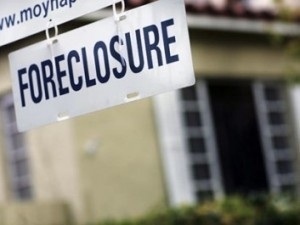 (MCT)— Finding a bank-owned home for sale these days is hard enough. Actually buying one is an even bigger problem.
(MCT)— Finding a bank-owned home for sale these days is hard enough. Actually buying one is an even bigger problem.
Last year the supply of bargain-basement, foreclosure homes shrank, as banks temporarily stopped trying to repossess properties to review possible paperwork errors.
But 2012 should be a different story. Lenders are starting to resume foreclosure filings, so more of these distressed homes are expected to be listed for sale.
“There’s such demand from buyers,” says Judy Trudel, a real estate agent in Florida. “Whatever foreclosures hit the market this year will be eaten up.”
Here’s how buyers can find the homes and make their offers stand out from the competition:
Locate Foreclosures: Ask real estate agents or go online. Any good agent can direct clients to bank-owned homes. Buyers who want to do their own research beforehand can visit websites that give consumers a free, seven-day trial. After that, there’s a $49.95 monthly fee to search for property addresses.
Government-run mortgage companies Fannie Mae and Freddie Mac market foreclosures nationwide on HomePath.com and HomeSteps.com, respectively. Neither charges a fee.
In addition, Fannie and Freddie have a program called First Look that gives first-time buyers and others who need financing a head start on investors in the search for bank-owned homes.
Under the program, people who intend to occupy a home as a primary residence can submit offers during a 15-day window without competition from investors. After the 15 days, investor offers will be considered with all other bids.
Start with Your Best Offer: This isn’t 2007 or 2008, when sales were sluggish and sellers were thrilled with any offer. Demand creates bidding wars.
“If I was a purchaser, I definitely wouldn’t go in (offering) less than the asking price,” says Summer Greene, a Florida real estate manager and the 2012 president of the Florida REALTORS® trade group.
“My advice is to offer the most you feel you would ever pay for the property,” said Laura Cameron, 51, who paid cash for a Deerfield Beach, Fla., foreclosure home last year.
Pay Up: Consider making a hefty good-faith deposit. Upon making an offer, a typical buyer puts down $1,000 to convey interest. Buyers who want to impress the bank may want to offer substantially more.
Trudel recently attended a real estate negotiating class, where the instructor suggested that cash buyers put down the entire purchase price. The rationale: They’ll pay the full amount in a few weeks at closing anyway, so they might as well pay it up front to show serious interest.
But that strategy isn’t for the faint of heart. If a buyer has to back out of the deal for a reason not allowed in the contract, the deposit is at risk, Trudel says.
Be Accommodating: Volunteer to close quickly. And when submitting offers, buyers should turn in all the requested paperwork. If a bidder forgets to include a “proof of funds” letter or other documents, the bank may just move on to a more complete offer.
Stand Firm: Don’t cave in to unreasonable demands. Trudel said she was told by a bank’s real estate agent that her client would have to waive his right to a home inspection if he wanted the property because so many bidders were interested. The client agreed over Trudel’s objection but still didn’t get the home.
Buying a foreclosure without an inspection is risky because many of the homes are in disrepair, and some have been sabotaged by the previous owners.
“I 100 percent do not recommend it,” Trudel says.
©2012 the Sun Sentinel (Fort Lauderdale, Fla.)
Distributed by MCT Information Services




